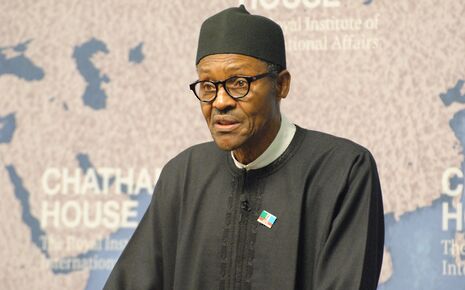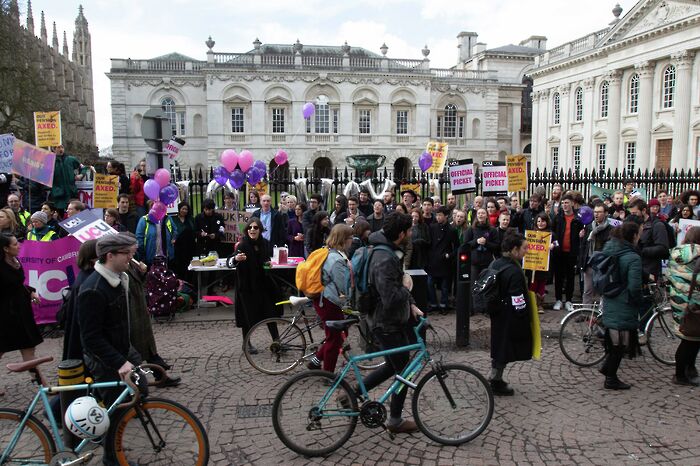Cambridge ACS to host five Nigerian presidential candidates for debate
The event, held in partnership with the Cambridge Union, will host five of the 31 candidates running for the upcoming national elections

The Cambridge University Afro-Caribbean Society (ACS) has announced their decision to host a Cambridge Union panel discussion in January with the top five candidates for the Nigerian presidency – to take place less than one month before polls open in the country.
Several days after the event was announced, the panel was called off.
The ‘2019 Nigerian Presidential Election Forum’ will host five candidates in the upcoming elections, including current president Muhammadu Buhari and former vice-president Akitu Abubakar, who are said to be leading the race. Oby Ezekwesili, a leader of the #BringBackOurGirls movement against the Boko Haram kidnappings, political economist Kingsley Moghalu, and former state governor Donald Duke will also join the discussion.
In a statement to Nigerian news website Pulse, Cambridge ACS Events Officer Semilore Delano said that the forum will present “a great opportunity for the candidates to engage in highly interactive and in-depth discussions with the diaspora on their policies.”
The event will place a particular emphasis on economic policy. A Facebook post by Cambridge ACS said that “the forum will serve as a chance for you to learn more about what drives Nigeria’s economy.”
The panel will be moderated by Al-Jazeera journalist Martine Dennis, who has previously spent 20 years with the BBC World Service covering African political affairs.
The decision to host a presidential debate outside of the country less than one month before the election has drawn some criticism. Ṣonola Ọnasanya, who is studying for an MPhil at Cambridge, argued to Varsity that “Nigerians should not be watching their future debated in a foreign country through YouTube in front of a foreign audience.”
And reacting to the announcement of the event on the Cambridge ACS Facebook page, some users also expressed concerns over the choice of guests. One noted the exclusion of human rights activist Omoyele Sowore, one of the 26 other presidential candidates, who has criticised the incumbent president’s war on corruption as partisan.
Cambridge ACS did not respond to Varsity’s requests for comment by the time of publication.
The voting rights of the diaspora population have been the subject of considerable debate among Nigerian politicians in recent years: at present, there is no consolidated external voting system for Nigerian nationals living abroad.
Last year, 12,665 Nigerian students were enrolled at UK universities, forming the sixth-largest UK student population from a non-European country. Remittances from the global Nigerian diaspora form the largest of any sub-saharan African nation.
Nigerian presidential elections have been criticised in the past on the grounds of corruption, as watchdog Human Rights Watch has documented cases of vote-rigging and practices of political patronage. A biometric voter card reading system was put in place in the 2015 elections, and further reforms have been proposed by the Nigerian National Assembly ahead of the February elections.
Buhari, the incumbent president, was the first in Nigerian history to successfully displace a sitting president via election upon defeating Goodluck Jonathan in 2015. The election is set to be a close contest between Buhari’s All Progressives Congress and the People’s Democratic Party, led by Abubakar. The two parties have dominated Nigerian politics since the end of military rule in 1999.
The Nigerian presidential election is due to be held on 16th February 2019.
- Updated, 17th January 2019: This article was edited to note that the event has been cancelled.
 News / Cambridge bus strikes continue into new year16 January 2026
News / Cambridge bus strikes continue into new year16 January 2026 News / Uni members slam ‘totalitarian’ recommendation to stop vet course 15 January 2026
News / Uni members slam ‘totalitarian’ recommendation to stop vet course 15 January 2026 News / Local business in trademark battle with Uni over use of ‘Cambridge’17 January 2026
News / Local business in trademark battle with Uni over use of ‘Cambridge’17 January 2026 Science / Why smart students keep failing to quit smoking15 January 2026
Science / Why smart students keep failing to quit smoking15 January 2026 Interviews / The Cambridge Cupid: what’s the secret to a great date?14 January 2026
Interviews / The Cambridge Cupid: what’s the secret to a great date?14 January 2026










